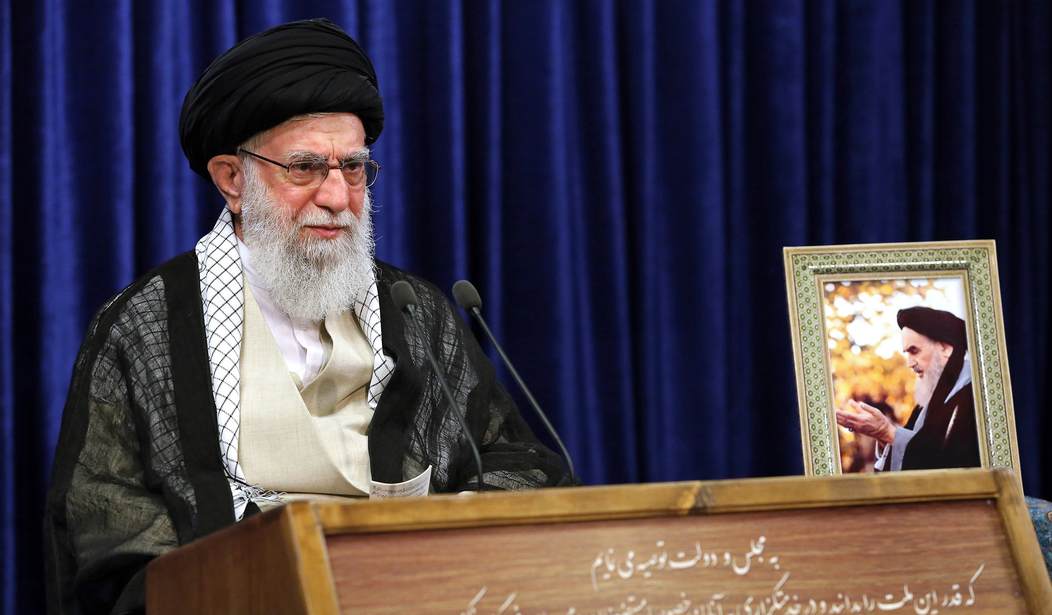Waves of large-scale social protest erupted across Iran in September 2022, reverberating across the nation for months. The countrywide unrest was hardly a fleeting rebellion. It was a resounding testament to the democratic aspirations of the Iranian people and a sign that the regime’s democratic forces are well equipped to topple the 44-year-old dictatorship.
Since then, the ayatollah’s desperate efforts to maintain power – most recently by lashing out at Iranian dissidents in France and Albania – continue to grab headlines. But U.S. and European authorities must not lose sight of the Iranian people’s thirst for a Free Iran.
Iranians yearn for a society that rejects suppressive acts, embraces civil liberties, and champions inclusive governance. They seek equality and hunger for positive relations with the world.
By standing at the Islamic Republic’s aggression, rejecting appeasement, and closing ranks with Iranians fighting for freedom, Western powers can help tip the scales against the regime’s illiberal authorities. Demonstrating solidarity with Iran’s organized Resistance would increase the prospects for a democratic future that is free from terrorism, nuclear threats, and belligerent posturing. It would also signal to ordinary Iranians that their voices will not be ignored any longer.
Regrettably, some Western officials are choosing a less valorous path characterized by weakness and accommodation. By failing to hold Tehran accountable for its conduct, some Western nations have unnecessarily escalated threats to global peace and security, undermining the very values they purport to uphold in the process.
A prime example is Belgium’s recent decision to release a dangerous terrorist, Assadollah Assadi, who was convicted by Europe’s own courts for attempting to bomb a 2018 Iranian opposition meeting in France. Having joined a bipartisan delegation of senior U.S. officials and American scholars at that event, I would have been among the casualties. Thankfully, Western intelligence agencies headed off the attack. That Assadi’s handlers received him with open arms when he returned home this summer could not have been lost by other would-be terrorists who aspire to Tehran’s vengeful graces.
Recommended
Equally disconcerting is the ban imposed by French authorities on the National Council of Resistance of Iran (NCRI) rally scheduled for July 1. Though Western efforts to placate Iranian officials by silencing dissenting voices is not new, compromising European values – including freedom of expression – is an ugly look.
So much for Liberté, Egalité, Fraternité. Enlightenment ideals be damned.
The NCRI is Iran’s largest democratic coalition, a freedom-seeking parliament in exile that encompasses the regime’s main opposition movement – the Mujahedin-e Khalq (MEK). The group represents the best organized and most potent grassroots opposition capable of toppling the regime from within. But while recent efforts to diminish and dismantle the NCRI are generating favorable press in state-controlled media circles, the love affair cannot last.
Support for the NCRI’s platform has grown markedly in recent years, with world leaders expressing unreserved support for the Iranian people’s uprising and endorsing the Ten-Point Plan put forth by Maryam Rajavi, the President-elect of the NCRI. The plan envisions a secular, democratic, and non-nuclear republic in Iran that upholds universal suffrage, gender equality, and the protection of minority rights.
Though it is impossible to know for sure, the ban on this summer’s NCRI rally in Paris is suspected to be the result of an unusually long phone call between France’s President, Emmanuel Macron, and Iran’s President, Ebrahim Raisi, on June 10. Similarly, observers contend that the deadly assault on Ashraf-3, the MEK's home, by 1,200 Albanian police officers, along with the subsequent statement by the State Department seemingly condoning this unwarranted attack, must be understood in the context of an under-the-table agreement between Washington and Tehran.
What is increasingly clear is that Iranian officials are pleading with Western capitals to curb the NCRI’s activities at home and abroad. The opposition’s willingness to share revelations involving the regime’s nuclear weapons capabilities and heinous human rights violations rarely goes unnoticed by Iranian authorities. One study undertaken by the Iran Policy Committee found that the group garners more attention inside Iran than all other opposition groups combined.
By rejecting Tehran’s entreaties and standing with freedom-seeking Iranians, Western powers can affirm their steadfast commitment to supporting the Iranian people’s inalienable rights, rediscover their own democratic values, and stand as a beacon of hope for those longing to replace authoritarian rulers around the world.
Having reached a crossroads, the choice is clear – offer unmitigated support to the Iranian people in their campaign for a democratic future or appease the regime’s fundamentalist rulers.
Prof. Ivan Sascha Sheehan is the associate dean of the College of Public Affairs and past executive director of the School of Public and International Affairs at the University of Baltimore. Opinions expressed are his own. Follow him on Twitter @ProfSheehan.

























Join the conversation as a VIP Member